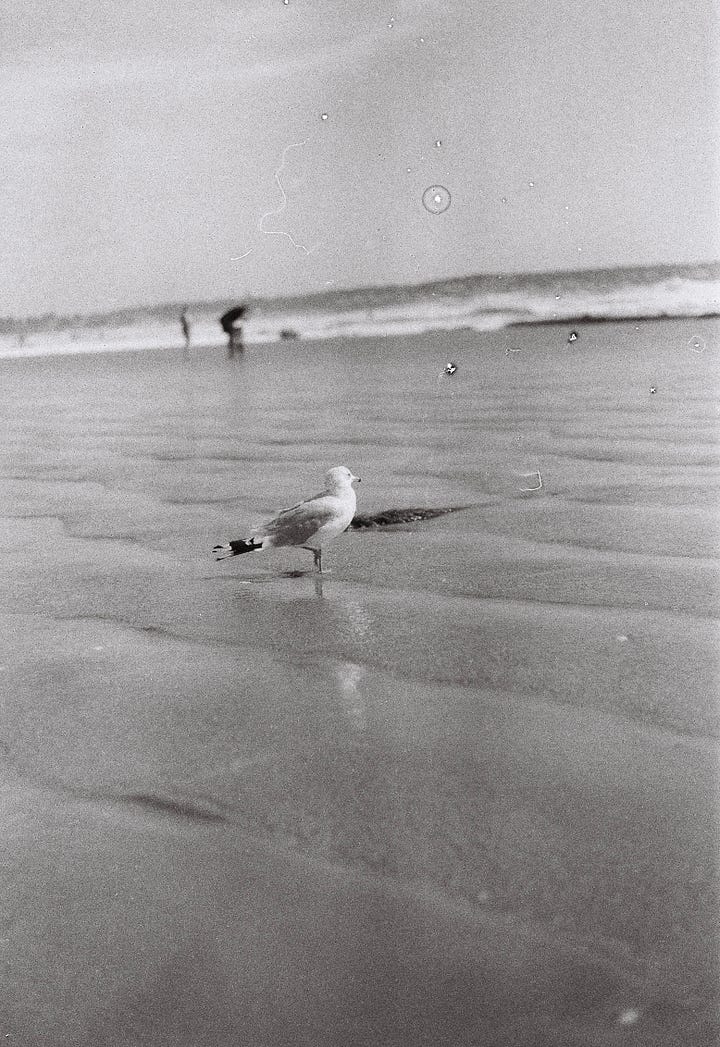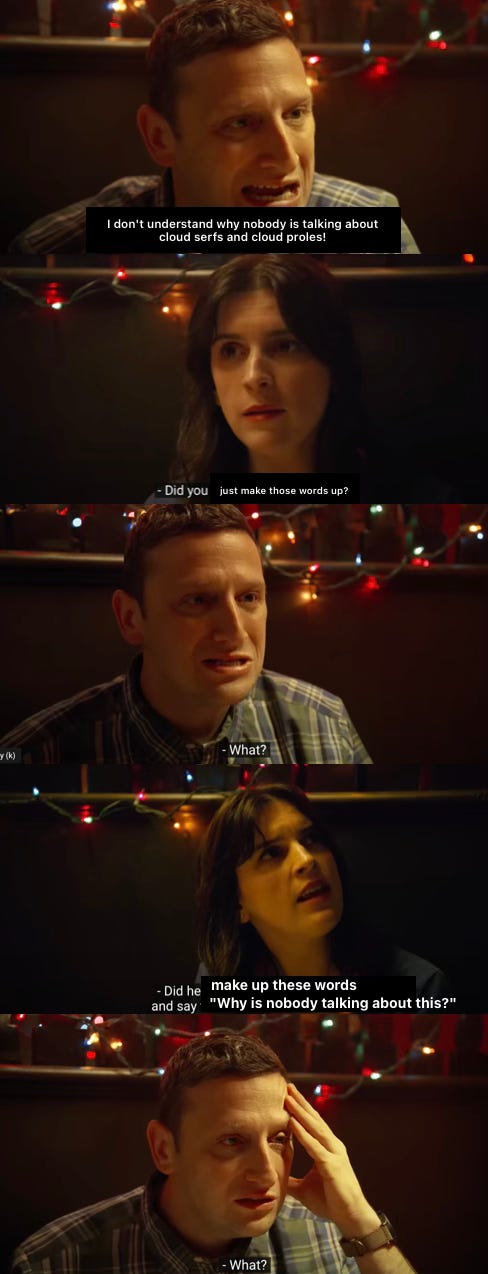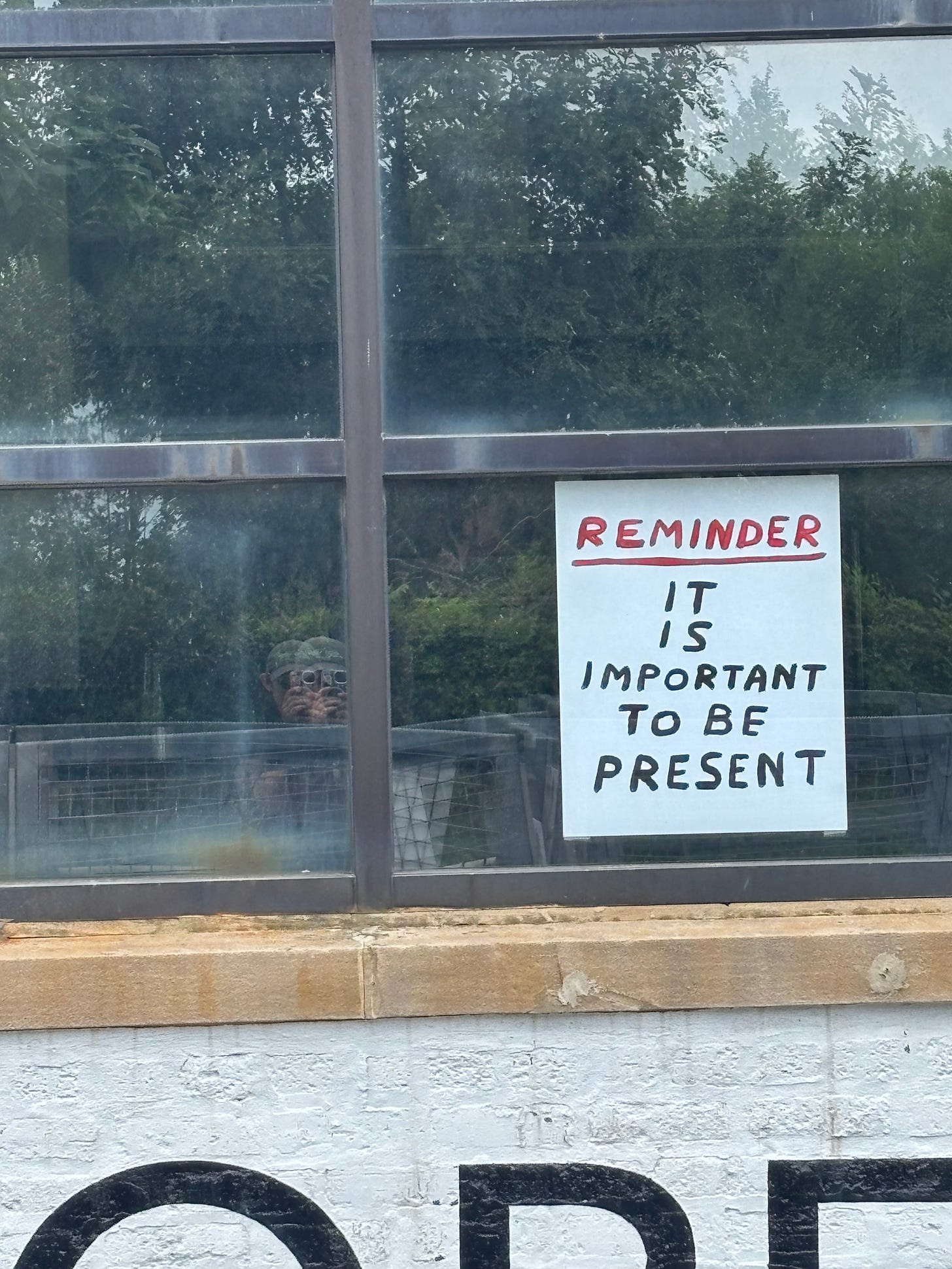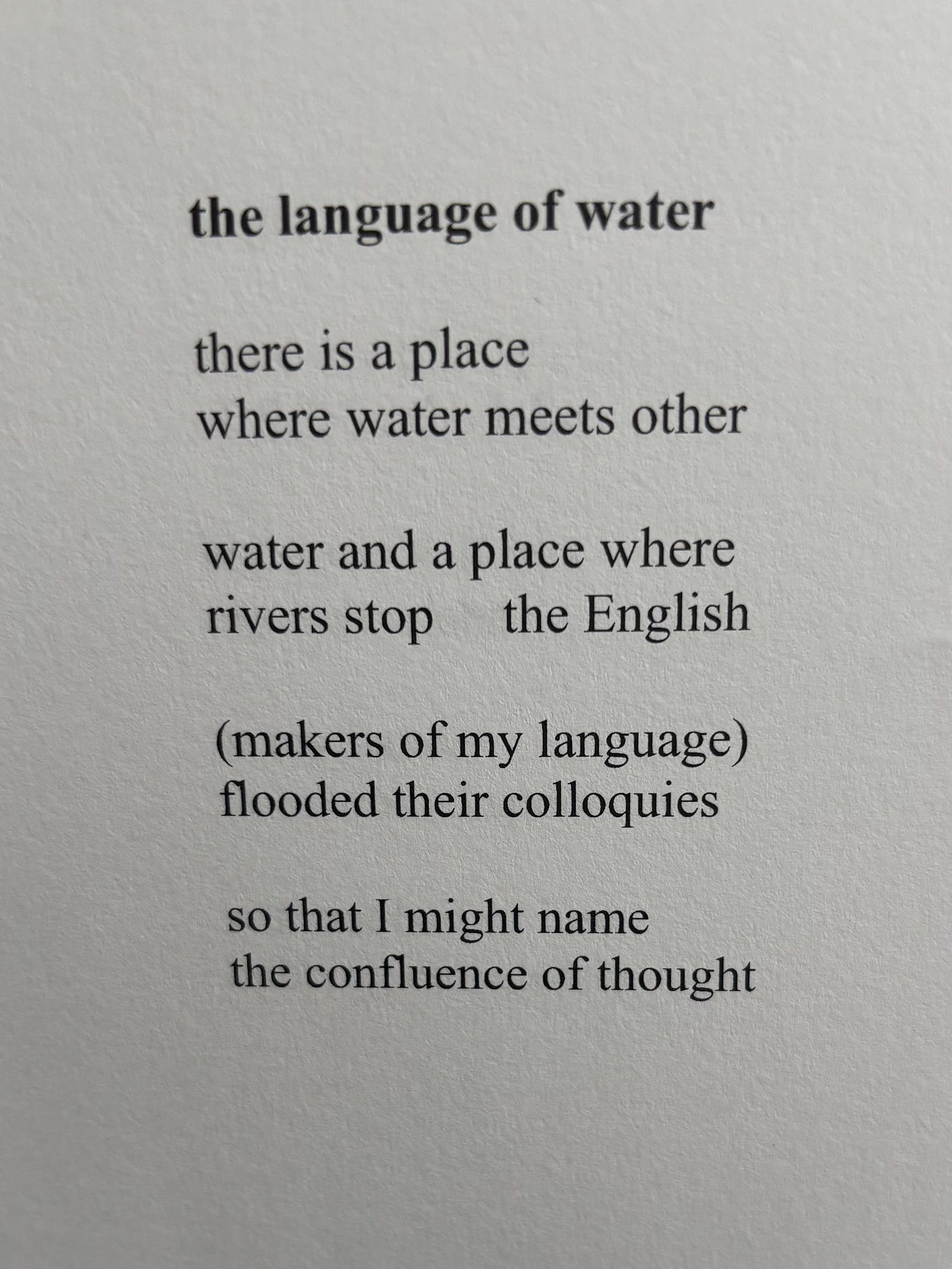Nothing is Real and We're All Slowly Dying
I'm just a cloud serf toiling in the cloud fief of Substack, harvesting fresh content for my cloudist overlords. Did I get that right?
General News
Ah, yes. The fake Labor Day.
I’m not going to complain about a day off, whatever. A free day to fuck off is exactly what I needed. Felt really deranged to me when I almost broke into tears over realizing that my field of study is dying under the Orange Cumrag whilst I was listening to Sabrina Carpenter’s new album (not good, don’t listen). I honestly don’t even know what to do about the news this week. Let’s all get a good laugh in before we remember how bad everything is. On the bright side, the concentration camp in the Everglades is emptying out. However, that’s not really stopping the mass deportations. In fact, people with fake jobs are busy deporting people with real jobs. Really deranged stuff. If you’re in Chicago and you’re wondering What Is To Be Done, it’s time to get organizized! I wonder how well this is going to hold up.
While I’m patiently waiting for my book review of Alyssa Battistoni’s Free Gift to get plucked up somewhere, I read this incredible interview with her. Good stuff. Really preparing myself to host a book talk with her for the Chicago DSA this fall. She’s the only writer on Marxist economics who I care to read at this point. During my trip to Boston, a friend of mine (fellow subscriber; sorry for what I’m about to say) gave me a copy of Technofeudalism by Yanis Varoufakis (Penguin Books, 2024). While I am deeply touched that a friend would gift me a book, I found myself frustrated over the kind of book that it was. Rather, the kind of argument that the author was trying to make.
I found myself disagreeing with Varoufakis throughout my entire read. I mean, the fine folks over at Jacobin already covered this a few times in the past (here and here). Varoufakis’ ideas hadn’t made much of an impact since the book’s release. I think I vaguely remember it getting a moment in the media cycle, but that didn’t last long. His ideas didn’t stick. Not only did his ideas not stick among the American left, but his European political alliance, DiEM 25, hasn’t made much of a splash in the European Union either, despite its near-decade long existence. Sure, movements take time. Maybe it’ll pick up in another 10 years. There’s always time, I suppose.
So, let me describe my experience reading this book. For the most part, it’s charming and well-written. Sure. By the time I got to the second chapter, I found myself perplexed by Varoufakis’ constant contradictions to his own thesis. I mean, he spends more time saying that he’s arguing that capitalism is dead and replaced by techno-feudalism, but he literally says over and over, in so many words, that capitalism has just changed form. It’s a Ship of Theseus situation, really. If it has all of the same parts of capitalism but it’s been reassembled, is it still capitalism or an entirely new thing? I genuinely don’t believe that Varoufakis actually makes up his mind on this. I don’t think he himself is convinced that capitalism is dead, judging by how many times he says it has mutated or transformed or changed shape. Like he says, “Capitalism is dead,” but then waffles on this by saying, “Capitalism is changing form.” Which is it, dude? Come on!
The real issue I had with it was on page 26, where he makes a claim that capitalism has commodified “women’s wombs.” First of all, I don’t think that’s entirely true. While childbirth and childcare are wildly expensive in the US, nobody is handing out stacks of cash to people giving birth. Also, “women’s” wombs? Alright. I can already sense the kind of guy he is without even being near him. In the third chapter, he tries to make the argument that power has been decoupled from land and the physical world, which I found incredibly egregious. There are real slaves in African cobalt mines who provide the raw materials to the real workers in factories who assemble the technologies that people use to access this abstracted wealth of “cloud capital.” His analysis isn’t rooted in a materialism that a Marxist worth their salt would consider. He makes the comparison of social media users (cloud serfs, as he calls them) to the actual workers who mine the materials and assemble the devices (materially and politically serfs, perhaps).
It’s a massive oversight on his part to claim that “the whole of humanity [chips in] to [cloud capital’s] reproduction–for free!” (80). Like…no? First of all, not everyone is participating in this online economy. Secondly, one must have land and workers in order to get the process going, then they’ve got to invest in the capital to toil the land, build the technologies, etc; and then they have to ship and distribute these products. None of that is done for free. “Oh, but what he’s talking about is how it’s free to post online!” Is it? The real cost of online posting is the cost of the phone (made from materials and workers), for one. The cost of wi-fi and cellular data in order to actually use any of the apps on the phone should be taken into account (also made from materials and workers). Then you’re scrolling through paid ads and sponsored posts (that’s not free for the company who is trying to get a user’s attention). Our attention is currency, sure. But are we really trapped in a “cloud-based sweatshop?” (81). That’s a little extreme, man.
For the next few chapters, I was a little checked out. Alright, grandpa, we’re all slaves to the tech overlords! Whatever! Then he makes some other absurd and overstated argument that profits don’t motivate “cloudalists,” which is just…not true. What, do you really think that Apple is just churning out iPhones because they just enjoy doing it? Do you honestly think that workers at Google and Meta are just following their bliss? Jeff Bezos is actually just a nice guy who lets people drive Amazon trucks for fun. Elon Musk hasn’t thought about profits at all (actually wait this is so much funnier considering…lol). As if all of this is happening out of the kindness of their hearts and not because they do, in fact, very much need profits. Right?
Here’s the kicker. After rolling my eyes as he continued to say that he has proved the death of capitalism despite not actually proving it and continuously contradicting himself, I made it to the last chapter. I got to page 184, where Varoufakis says, “Instead we have a centre and an alt-right both in thrall to a new ruling class, the cloudalists, whose rise to power they have enabled, while the left is preoccupied with a civil war on the definition of ‘woman,’ on the hierarchy of oppressions and all the rest. Meanwhile, no one speaks for the cloud proles, the cloud serfs, the vassal capitalists, what is left of the traditional proletariat-precariat, the victims of climate change, the masses that technofeudalism stifles and imprisons in its cloud fiefs.” LM–and I cannot stress this enough–FAO. At which point, I glazed over the rest. Yeah, crypto is fake and dumb.
Personally, I find two things very entertaining about his book: Varoufakis dedicates a whole entire chapter to semantics, and why it’s important to distinguish technofeudalism from capitalism, while also saying that the left is in a civil war over the meaning of “woman.” Fuck right off, man. Get real. The other thing that I find entertaining is this lamentation for the cloud serfs. Yeah, dude, nobody is talking about some shit that you literally just made up. Woe is he, who toils in the prison of content and likes and shares! Woe is he, enslaved and isolated by the YouTube shorts and TikTok shop! Where is the outrage for the silenced and oppressed Instagram influencers, with their matcha lattes and Dubai chocolates? Who will speak up for them? I’m honestly done, I don’t have much else to say.
Personal News
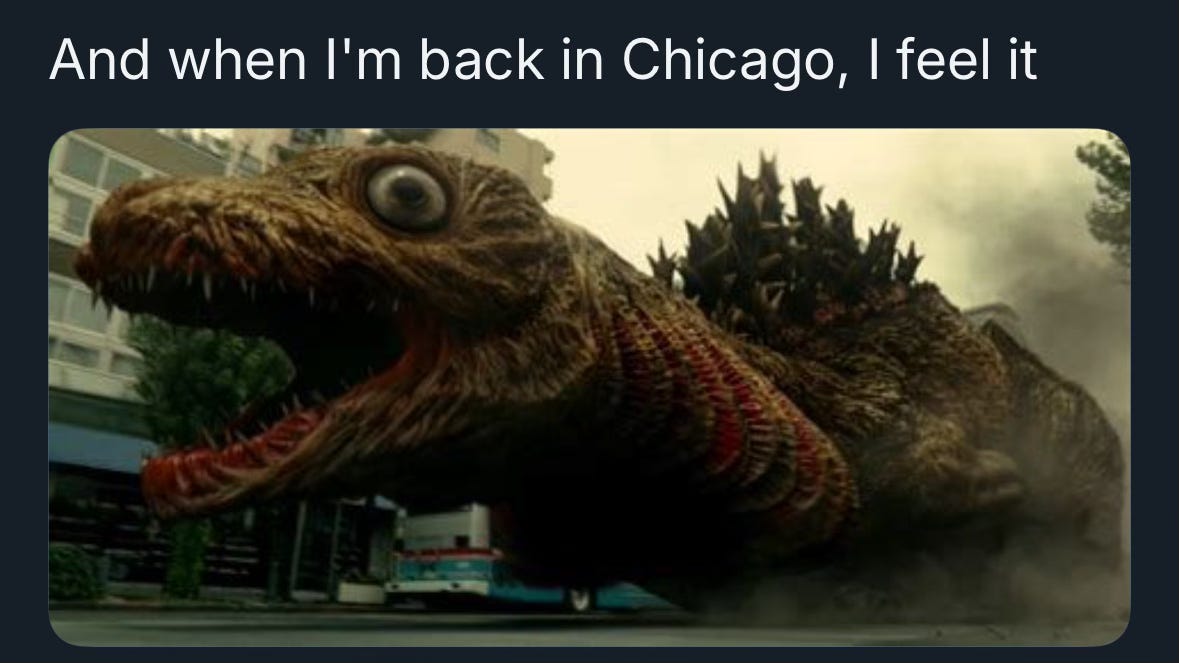
To the subscribers who have shared with me that y’all actually read this newsletter regularly: Thank you so much, I really appreciate it. Two people this past week have reminded me that y’all are actually out there perceiving me via this newsletter. Kind of embarrassing for me, but your attention is appreciated. Especially since there is a war for our attention across these “cloud fiefs,” I appreciate the fact that my silly little letters aren’t just tossed into the digital void. Since I have your attention, please don’t forget to make a donation to my fundraiser before September 27! You still have time! I’ll remind you again next week! And every week until then!
Man, it’s really September, isn’t it? I’ve got a lot of irons in the fire. Too many, actually. Somebody get me away from the proverbial fire! If you or anyone that you know has any anti-war poems to contribute to the second issue of my literary magazine, The Pill, please send them the link to the submission page! I really loved the first issue, I’m excited to see what’s sent in for the second. One day, all of this hard work will pay off (somebody please start paying me for my literary contributions, I am so nice and normal). I’ve submitted some things here and there for some Monetary Prizes, honestly.
I wish that I had more personal news to share. Anybody hiring?
Poetry
Briefly revisiting last week’s newsletter on stewarding art, I genuinely love being an editor and reader for literary magazines and publishers. Back when I was working on my MFA, I was briefly an editorial assistant for Redivider. We occasionally received submissions via post, which weren’t accepted for publication (a lot of those were really bad, like Boomers sending MAGA shit from the MA suburbs, weird shit), but I’d go through them out of curiosity. I came across a packet of poems by an incarcerated poet and I started writing letters to him as a means to connect him to viable publishing opportunities. The below poem is from his debut collection, The River is a Lake. I’m unsure what he’s up to these days, but I hope that he’s doing well.
Resonance. I think about resonance. Don’t you?
P.S.
Enjoy some photos from Nahant Beach outside of Boston, from one week ago. Still thinking about “home” and “family” and the longings of a vagabond. The perpetual feeling as if one does not belong anywhere in particular, yet one’s feeling of belonging permeates the whole of existence. Lost and found at the same time.

